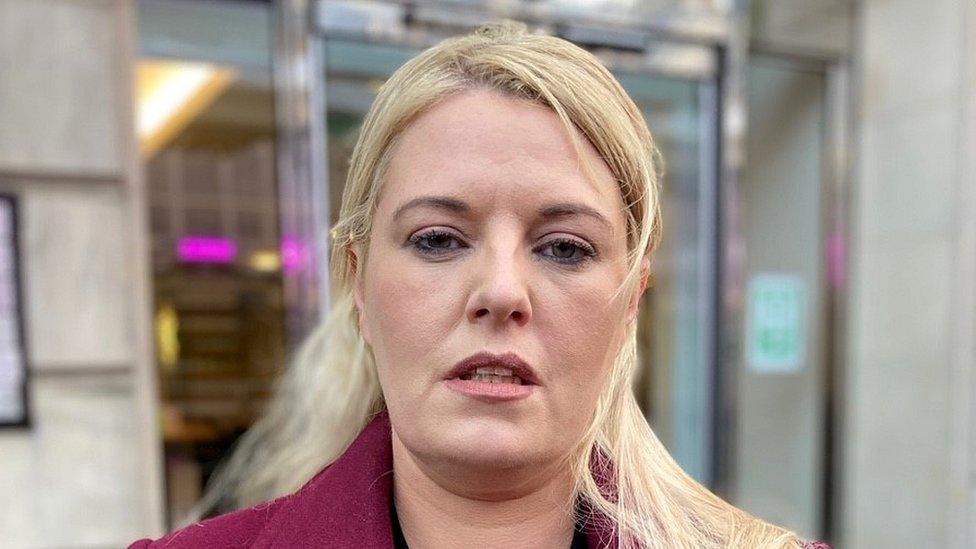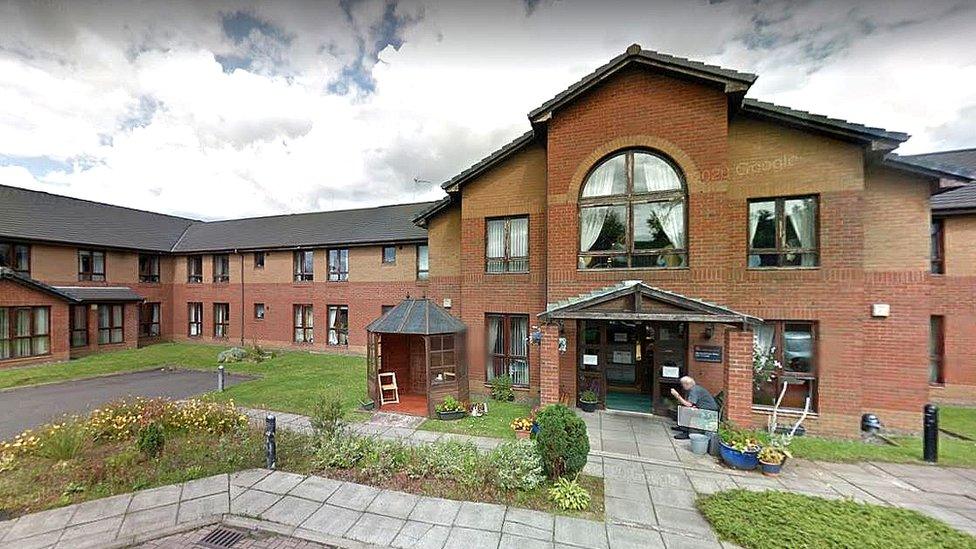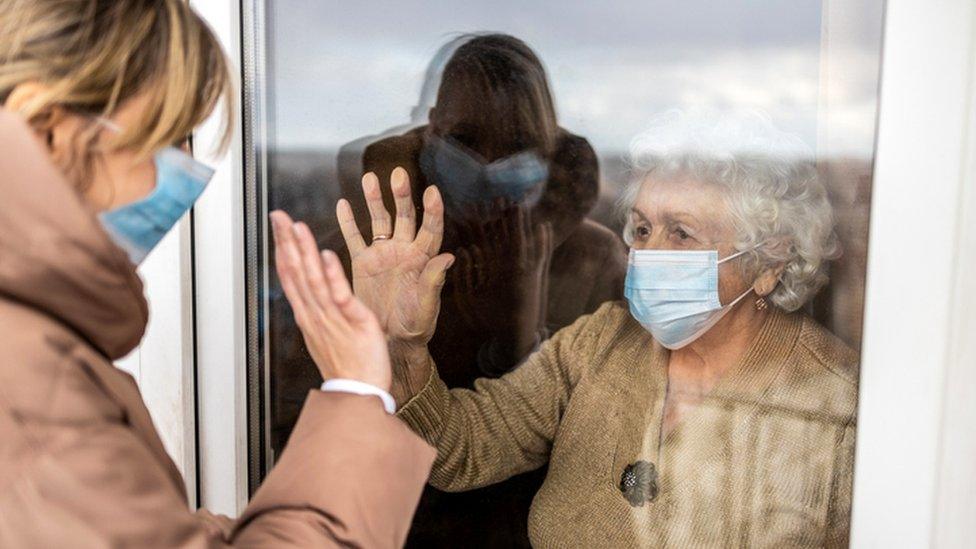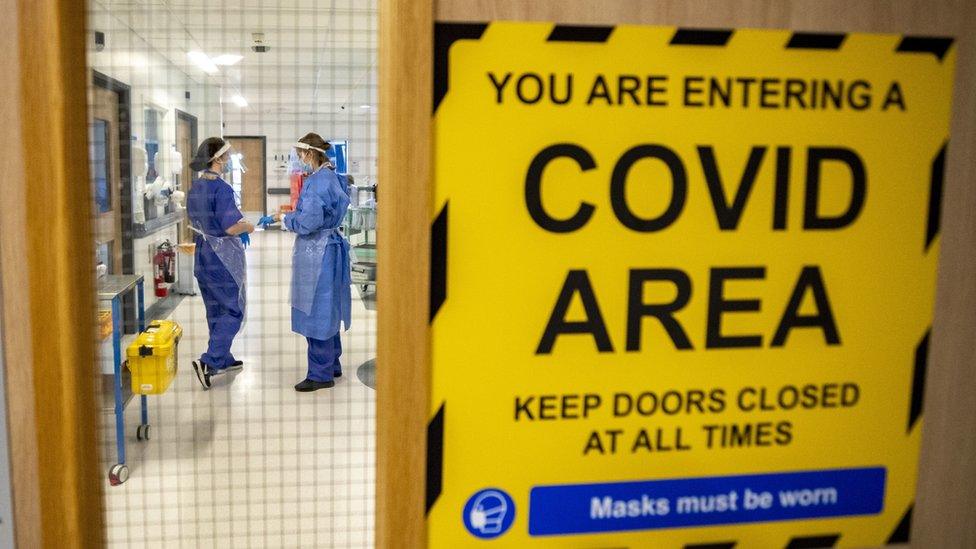Scottish Covid Inquiry: 'Do not resuscitate' against family's wishes
- Published

Gillian Grant raised concerns about her grandmother's treatment in a Bishopbriggs care home
A "do not resuscitate" plan was put in place for a grandmother living in a care home against her family's wishes, Scotland's Covid Inquiry has heard.
Gillian Grant said the Do Not Resuscitate (DNR) notice was discovered in her grandmother's medical records after her death with Covid in 2020.
Inquiry lawyer Stuart Gale KC named the home as Mavisbank in Bishopbriggs.
Ms Grant said she believed her gran was the first of several residents to die during a Covid outbreak at the home.
Mavisbank Care Home in East Dunbartonshire was at the centre of a Covid outbreak in November, 2020 which reportedly killed 13 residents.
The operator of Mavisbank said it adhered to government Covid guidelines and added that DNRs were a medical decision taken by doctors
Ms Grant's 91-year-old grandmother, who the BBC is not able to name due to reporting restrictions issued by the inquiry, died on 4 November, 2020.
When preparing to participate in the public inquiry, Ms Grant's legal team discovered a DNR plan in her grandmother's medical records.
The inquiry heard that these records showed Ms Grant's grandmother had been given drugs "associated with end of life care" prior to her death.
In an interview with BBC Scotland, Ms Grant said she had "explicitly made clear" to the home that she did not want a DNR put in place for her gran, and that an ambulance was to be called if her health deteriorated.
She said a DNR form with her name on it had been filled in for her gran the same day she had told the home not to.
She said: "To know somebody had filled that in on my behalf and without my consent made me so angry and so upset.
"And then to think that I might not be the only person that this has happened to."

A Coronavirus outbreak at Mavisbank care home in 2020 led to the deaths of 13 residents
Allowed into the home for the first time on the day of her grandmother's death, Ms Grant said she was concerned about the measures, such as adequate PPE, in place to combat the virus.
She said: "I was sitting there with my grandmother's body in front of me, when I should have been grieving, and all I could think was 'they're just spreading this virus around this home'.
"My grandmother was the first person to die at Mavisbank and I just kept thinking everyone else here is going to die if they don't stop doing what they're doing."
Ms Grant also told the inquiry she felt she had been misled over the time that her grandmother had died, saying she was cold to touch when she arrived at the home despite staff telling her that the death had just happened.
The public inquiry is investigating Scotland's response to the pandemic.
The inquiry's approach is to look at the impact of the pandemic first, before turning to how decisions to respond to the crisis were taken, and then how Covid policies were implemented.
'Adhered to guidance'
A spokesperson for Mavisbank, said: "Our thoughts and sympathies are with all families that have lost a loved one from coronavirus.
"While it would not be appropriate for us to comment on the specific medical details of individual residents, we think it is important to note that DNRs are a medical decision taken by doctors. Care homes do not have the authority to make this decision."
The spokesperson added: "Throughout the pandemic we adhered to the government guidance and followed the advice of medical professionals."
Related topics
- Published24 October 2023

- Published24 October 2023

- Published18 July 2023

- Published27 November 2020
